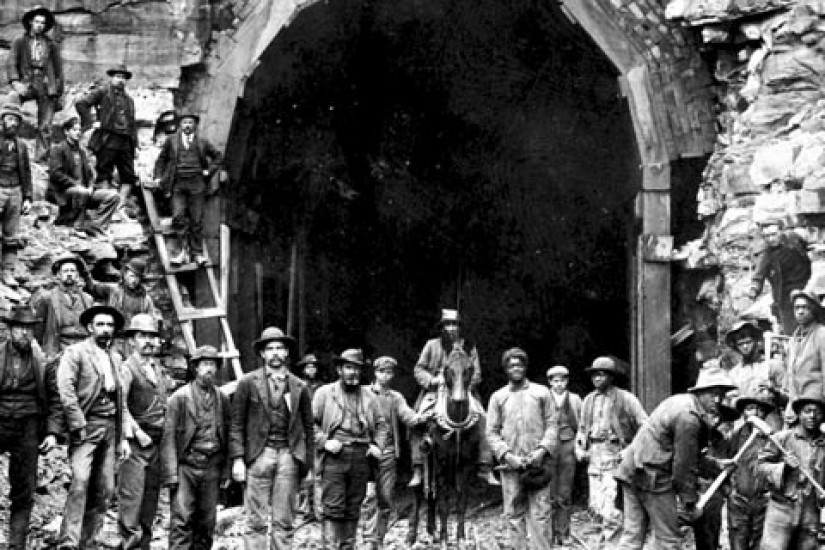Like many northern black men, Henry joined the Army to help other black people fight for freedom. While a few actually fought, mostly they were forced to do the most menial labor, such as gravedigging.
After the Civil War ended, both black soldiers, quickly mustered out of service, and freedmen were gathered to bury the many bodies around Richmond. One was John Henry. He may have done other tasks as well, but we don’t have those records.
The Freedmen’s Bureau was established by 1866 but the quality of the officials running it varied widely. In Prince George County, Virginia, it was headed by a guy named Charles Burd who had been shot in the head at First Manassas and was never the same.
Meanwhile, many black workers were striking by 1866. Like many Freedmen’s Bureau officers, Burd was completely unsympathetic with the freed slaves, identifying with the white South and filled with racism. Burd’s own letters are filled with him complaining about the ex-slaves.
His own successor in the job accused him of being a policeman for hire for employers, calling out his men to put down any kind of organized labor activity by black people. It seems that John Henry was one of the men arrested by these government-employed thugs.
It’s hard to say if he was actually guilty of any crimes, but what we do know is that black men were thrown into prison for anything, especially resisting forced labor. Burd happily enforced Virginia’s Black Code and Henry was probably caught up in this and thrown into prison.
Burd himself was soon fired but this was no help to Henry, sentenced to ten years in the Virginia State Penitentiary, which almost no one could survive.
Henry arrived in the pen on November 16, 1866. If he didn’t already have a scar on him, the guards gave him one to identify him if he fled. The overwhelming majority of prisoners were black, up to 80 percent by early 1867 as Virginia sought to imprison as many as possible.
The prison, now ruled by the military, was shocking. A Radical Republican named Burnham Wardwell was in charge of it and he was horrified at the brutality.
But like most Radicals, he strongly believed in the free market. Seeing life in the prison as a torture chamber, needing to find a way to fund the state, and hoping to find some other option for prisoners, the free market it was. He instituted the convict lease system.
